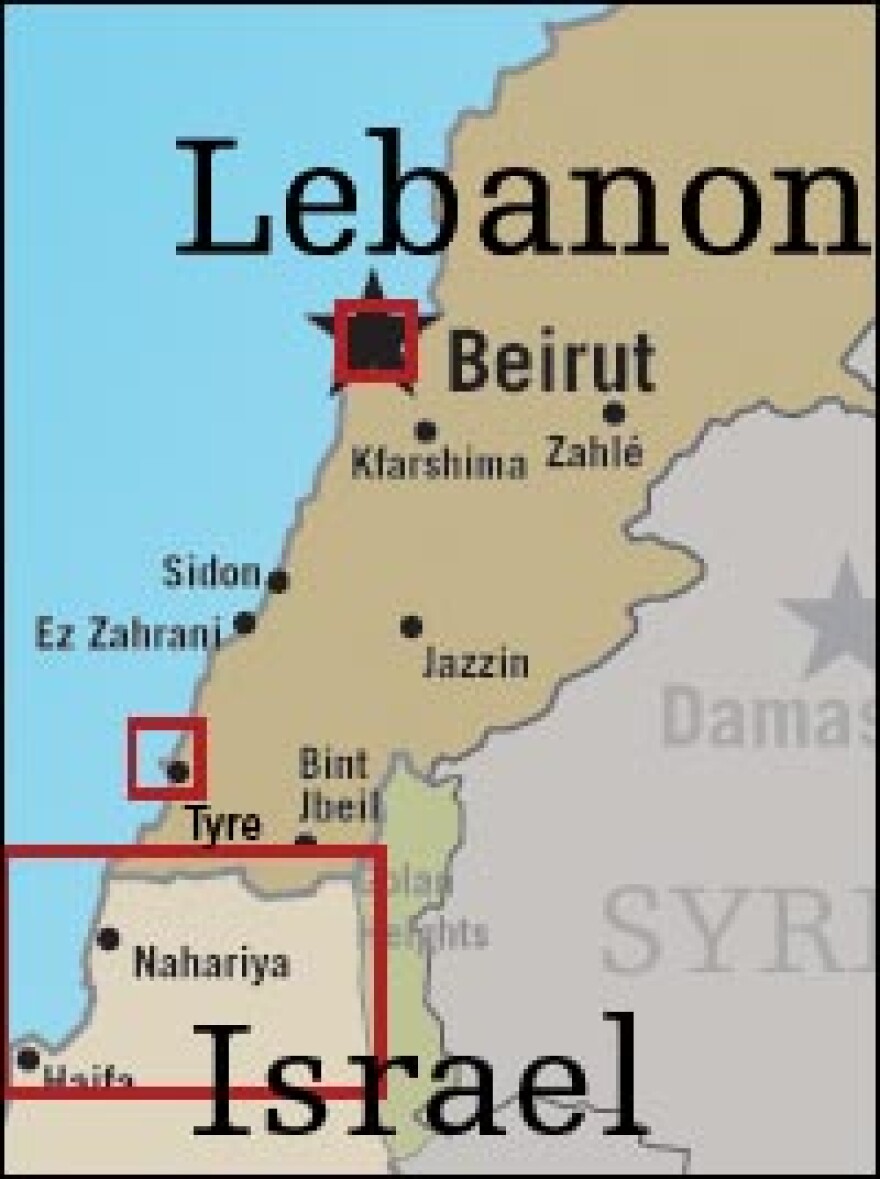
United Nations Secretary-General Kofi Annan is calling for an immediate halt in the fighting between Israel and Hezbollah guerrillas in Lebanon.
Annan told the U.N. Security Council on Thursday that a cessation of hostilities would "give diplomacy the chance to work out a practical package of actions" that could provide a solution to the crisis.
In Israel, military officials are hinting that a limited ground invasion of southern Lebanon may be necessary to destroy Hezbollah's future capability to carry out attacks against the Jewish state.
Small groups of Israeli soldiers have already met fierce resistance in southern Lebanon in a bid to destroy Hezbollah tunnels and outposts. At least three Israeli soldiers were wounded in clashes with Hezbollah guerrillas.
Overnight, Israeli warplanes dropped 23 tons of bombs on a suspected underground bunker used by Hezbollah leaders. The militant group denied any of its leaders were in the area, describing the site as a mosque under construction.
Wednesday was the deadliest day of the nine days of fighting, killing 70 Lebanese and three Israelis.
Lebanese Prime Minister Fuad Saniora is warning of an impending humanitarian crisis. The country, he says, "has been torn to shreds." Nearly half-a-million Lebanese have been displaced by the fighting, and reports from Lebanon suggest medical supplies are running low.
More than 1,000 U.S. citizens will be evacuated to Cyprus on Thursday. A small contingent of U.S. Marines arrived at Beirut's port Thursday, the first time Marines returned to the city since the bombing of the Marine Barracks in Lebanon in 1983. That attack left 240 dead. The evacuation of foreign nationals from Lebanon is the largest such effort since the World War II.
Since fighting began on July 12, after Hezbollah guerrillas carried out a cross-border attack that left eight Israeli soldiers dead and two abducted, Israeli warplanes have launched nearly 1,000 missile strikes against suspected Hezbollah targets. Hezbollah has launched about 1,100 rockets into Israel during the same period.
Casualties are mounting, with more than 300 Lebanese dead. According to Lebanese officials, the majority are civilians. In Israel, about 30 people have been killed in Hezbollah strikes.
International pressure continues to mount on Israel to end its air assault. The Bush administration will likely dispatch Secretary of State Condoleeza Rice to the region this weekend.
Israel says its campaign will continue until it retrieves its two abducted soldiers from Hezbollah custody and disables the group's ability to strike Israel in the future.
Some Arab governments have been critical of Hezbollah. Saudi Arabia called Hezbollah's July 12th raid into Israel "reckless adventurism," and the Egyptian government has also criticized the militant group.
But on the streets of Arab capitals, Hezbollah's popularity is rising rapidly with many on the "Arab street" who believe that Hezbollah’s initial raid into Israel has reinforced the impotence of Arab leaders to fight Israel.
Hezbollah, officially, is committed to the destruction of Israel. But some analysts, including Daniel Byman of Georgetown University, believe the movement is trying to show that it is a "regional, revolutionary power."
Copyright 2022 NPR. To see more, visit https://www.npr.org.



